Don had a stem cell transplant at 70 and says “exercise helped”
Don Hayes had an allogeneic stem cell transplant days before his 71st birthday and firmly believes that keeping active played a huge role in his recovery, both mentally and physically.
“The whole process has had a huge positive effect on my life. I’m pretty much back to where I was, and I’m a lot older,” said Don, 72, of Melbourne.
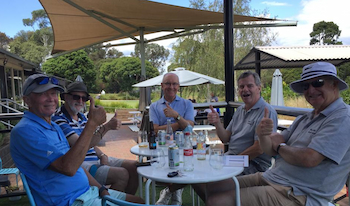
He was referring to his life, five years earlier, before being told he had a form of blood cancer that he’d never even heard of – myelodysplastic syndromes (MDS).
And, speaking from experience, he’s adamant that when going through the stem cell transplant process, “you’re not going to gain anything lying in bed the whole time and feeling sorry for yourself”.
“I think you have to force yourself to keep physically active, it’s important,” said Don who is back at work and back on the golf course.
He took part in a 12-week exercise program, through the Baker Institute that began before his transplant in May last year, continued while he was in hospital and during the early part of his recovery at home. (More on that later in this story)
And if he hadn’t been physically active over those three months, he says, “I would’ve been nowhere near where I am now”.
Don’s symptoms and MDS diagnosis

In 2017 Don noticed he was “losing a bit of weight” so he went to his GP and had a blood test.
“My blood cell count and my platelets were down, which my doctor wasn’t happy about, so he referred me to a haematologist who said he felt it was MDS,” explained Don.
This was confirmed with a bone marrow biopsy and other blood tests, and he was diagnosed at the Peter MacCallum Cancer Centre. Don was told his MDS “shouldn’t be a problem” and that “it’s probably not going to eventuate to leukaemia”.
Don knew nothing about MDS when he was diagnosed and his haematologist gave him and his long-term partner, Rose, an information booklet; a printed copy of the Leukaemia Foundation’s A guide for [people with myelodysplastic syndromes (MDS).
“I think I’ve still got it actually,” he said.
Then Don began being monitored every three months which meant blood tests and an appointment with his haematologist. As time passed, Don found his energy was being sapped and he was struggling on the golf course. He had to stop for a breather on some of the holes where it was a bit hilly.
His watch and wait protocol (not in active treatment) continued until early 2020 when his red blood cell counts started deteriorating. He went to hospital for his first blood transfusion, and then continued having transfusions on a monthly basis.
“Then they became fortnightly, then weekly,” said Don.
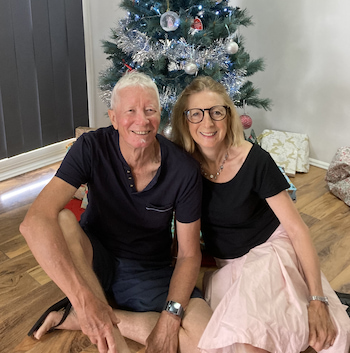
By then, his haematologist was trying to get him on a clinical trial, and in late 2020 Don started treatment on a randomised study at the Alfred Hospital with Professor Andrew Wei. The experimental arm was azacitidine plus magrolimab, which was being compared to the azacitidine plus placebo arm.
Don’s blood transfusions had been based on his blood type, but it turned out, this was not helping his condition.
“So before the trial began, it was critical that samples of my blood were sent to Queensland to complete crossmatching,” said Don.
“The crossmatching had discovered that I required a specific blood mix and that needed to be ordered the day before each of my transfusions. Some days I waited hours for the blood to turn up.
“I stayed on the trial for a couple of months but kept being admitted to hospital for three or four days, mostly with raised temperatures, and by then I was having blood transfusions every other day.
“They eventually told me that because of my adverse reactions, it was unlikely I was on the placebo arm,” said Don.
“Concerned because I was having lots of hospitalisations, Dr Wei referred me to Professor David Curtis to look at transplant possibilities,” said Don.
Going off the clinical trial and preparing for a stem cell transplant
Due to recent changes to the eligibility criteria, stem cell transplants had become available to older people, up to the age of 75.
“So at my age, I was able to have the transplant,” said Don, who met with Prof. Curtis in February 2021.
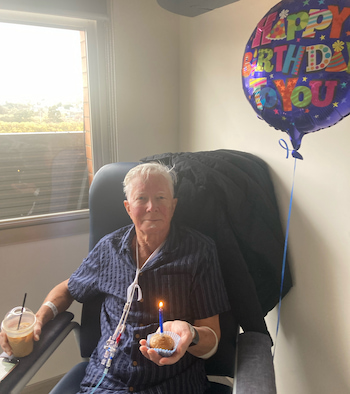
“It’s not a nice thing to find out you’ve got MDS, but one of our biggest shocks was being told there was a 30% chance of not surviving a stem cell transplant.
“That upset Rose, and me, but especially Rose.”
And this statistic was something Don found difficult to tell his four adult children when he explained that he was about to go through a transplant.
“It was hard and maybe I could have worded it a bit differently, but they had to know the possibilities of this happening and that happening, and they understood why I had to have the transplant,” said Don.
“David took me off the trial because of its adverse effect on my symptoms and my health and well-being.”
Over the next couple of months, Don worked on getting his health and strength back, all the while continuing to have blood transfusions but no other treatment.
His children, including a son who lives in New Zealand, were tested as possible stem cell donors. Unfortunately, none of them was a match.
“Usually, it’s siblings rather than children that are matches, but my siblings were too old. They’re also in their 70s or 80s,” said Don.
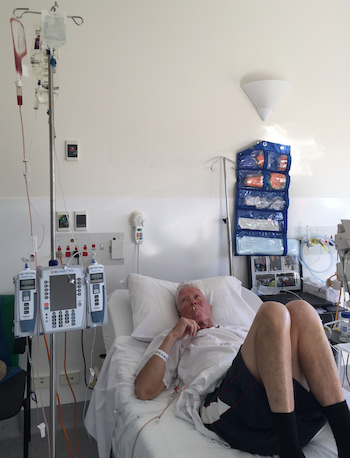
An unrelated matched donor was found in Germany through the Australian Bone Marrow Donor Registry.
“I only know he’s a young gentleman,” said Don, “and he was close to a perfect match”.
Plans were put in place for this donor’s stem cells to be collected and shipped to Australia, which was complicated by the COVID-19 pandemic. Next, Don’s transplant date was changed suddenly because of the availability of a hospital bed.
“I had it earlier,” he said, “by about a week”.
Taking part in a physical activity study – the ALLO-Active clinical trial
Prior to having his transplant, which Don said went “very well”, he “had a visit from the Baker Heart and Diabetes Institute which is next to the Alfred Hospital. He was told about the ALLO-Active study which was evaluating physical activity intervention to potentially prevent adverse cardio and metabolic consequences of allogeneic stem cell transplantation.
“They were choosing people to go on the 12-week trial, and I was very anxious to be included.”
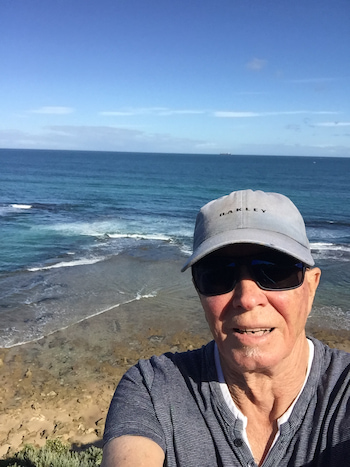
After going through “a whole heap of physical tests, heart checks, and MRIs”, Don was told the good news – he’d been accepted for the trial, which would cover his pre-transplant, transplant, and post-transplant stages.
“I was in hospital for four and a half weeks. They had a stationary exercise bike in my room so I could exercise on that, a trainer came in every second day and put me through my exercises when I was feeling okay, and I would walk around the confines of the transplant area,” said Don.
“I spent most of my time walking and doing various exercises including with rubber pulley pull bands and that sort of stuff, and that kept me busy.”
And after the transplant Don had two-hour sessions a couple of times a week at the gym which he had to fit in around his transfusions of blood and platelets.
“That was a fairly rigorous workload, but it got easier as time went on.
“I had to put everything down on paper, including what I was eating, and they gave me a Fitbit [activity tracker] that was recording everything I did as well, and it went back [connected] to their system.
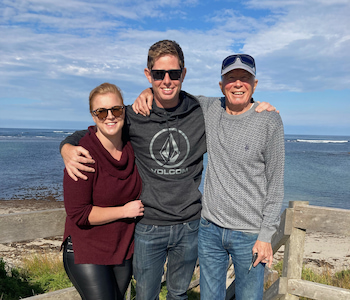
“I think it [being physically active] had an amazing effect. It was absolutely a positive and I’m not sure how I would have reacted to the whole thing without that,” he said.
One of Don’s biggest issues during his transplant was the hospital food, which he struggled with despite dietitians assessing his diet.
“It’s a public hospital, so unfortunately the food’s not fantastic, but a bottle of tomato sauce helped disguise some flavours.”
The “other thing that happened”, after Don had been in hospital for a week, was his birthday on May 27, and Rose came in to visit and celebrate with a cake, candles, and balloons.
“That was the last day I saw her in person while I was in hospital, because of COVID, until the day I came out of hospital, when she came to pick me up.”
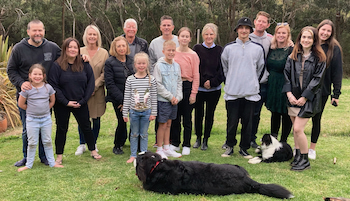
“When Rose couldn’t come into the hospital, she would go to the park across the road, and we’d wave to each other while talking on our mobiles. That was about it, other than FaceTime.”
For Don, not seeing Rose or family and friends because of COVID was the “hardest part” of his entire transplant hospital experience.
He had fevers “every now and again” while in hospital and that meant restricted access to and from his room for a day or two.
“Nobody was allowed in unless they were fully decked out,” Don said.
“That happened three times I think, but most of the time I was okay which I thought was due to keeping active.”
In remission and getting on with life
After his transplant, Don was told that… “anything could happen at any time”.
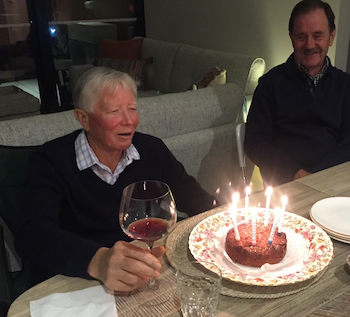
“Dr Curtis said, ‘basically, at the moment, you are in remission’ and that if I stay in remission for two years, ‘it should never come back’, he said.
“And he said, ‘you’ve done pretty well, so I don’t think you need to worry too much about it’.
“It’s at two years after your transplant where they say that ‘that’s it, it should never come back again’. I’ve still got another six or so months to go,” said Don.
At first, after going home, he made trips to the hospital “every day or every other day” and saw Dr Curtis every week. He had blood tests and blood transfusions and his blood counts fluctuated for about five months before stabilising.
“Like everybody else, I lost my hair which was a bit of amusement for some of my family and friends,” said Don.
“I didn’t have any of the issues that they warned me about.”
And that included graft versus host disease.
“I believe it can be an issue, but I avoided that. I was still being checked up to a month or two ago by a skin specialist.
“In late 2021, I stopped having lots of trips to the Alfred,” said Don, and in early 2022 he stopped having blood transfusions, and after that, his Hickman line was removed.

“That was a great relief. I was able to have a proper shower for the first time in eight months. It was fantastic. It’s those little things that you appreciate.
“I started back playing golf in February and since then I’ve been fine.”
All Don’s medications were stopped about eight months ago and as the end of 2022 was approaching, Don was having blood tests and seeing Dr Curtis, via a tele-health conference call, every three months.
“Our phone calls are very short. There’s nothing to talk about. I don’t have any issues. He just checks the blood tests and the numbers and everything else, and everything’s good,” said Don, and now he’s on a revaccination schedule for “childhood immunisations including measles, mumps, rubella and that sort of thing”.
“Those have been happening on the go, at six months, eight months, 12 months, and I’m not allowed to have the live vaccinations until 25 months after my transplant.
“Now I’m feeling very good. I’m playing golf and I’m not having those issues I had before the transplant, that’s for sure.
“Unfortunately, I’m not exercising like I was. I loved it when I was doing it. They gave me a [follow-up] program but I started doing other things and forgot about it. Rose keeps at me about doing ‘a bit of exercise’ every night. We’ll get there.”
Returning to work and travel plans
Don chose to return to work when he got the opportunity 10 weeks before his interview with MDS News in October 2022. His former employer had called him, asking how things were going, and Don was also asked to ‘come back’.
“I was working five days a week, which I wasn’t happy with because it affects my Friday golf, but now I’m doing four days,” said Don, about his job as a driver for a car dealership.
“I love my retirement job, but I love to play golf on a Friday more.”
Rose and Don have bought a caravan and when it arrives, they’re heading off on a few trips.
“We’re going to Adelaide to spend Christmas with Rose’s family, which we are looking forward to, and we will spend a couple of weeks travelling before we get there, and again afterwards.”
The couple also is planning to go to New Zealand to meet Maisie, who is six months old now, and the youngest of Don’s seven grandchildren.
Last updated on December 21st, 2022
Developed by the Leukaemia Foundation in consultation with people living with a blood cancer, Leukaemia Foundation support staff, haematology nursing staff and/or Australian clinical haematologists. This content is provided for information purposes only and we urge you to always seek advice from a registered health care professional for diagnosis, treatment and answers to your medical questions, including the suitability of a particular therapy, service, product or treatment in your circumstances. The Leukaemia Foundation shall not bear any liability for any person relying on the materials contained on this website.